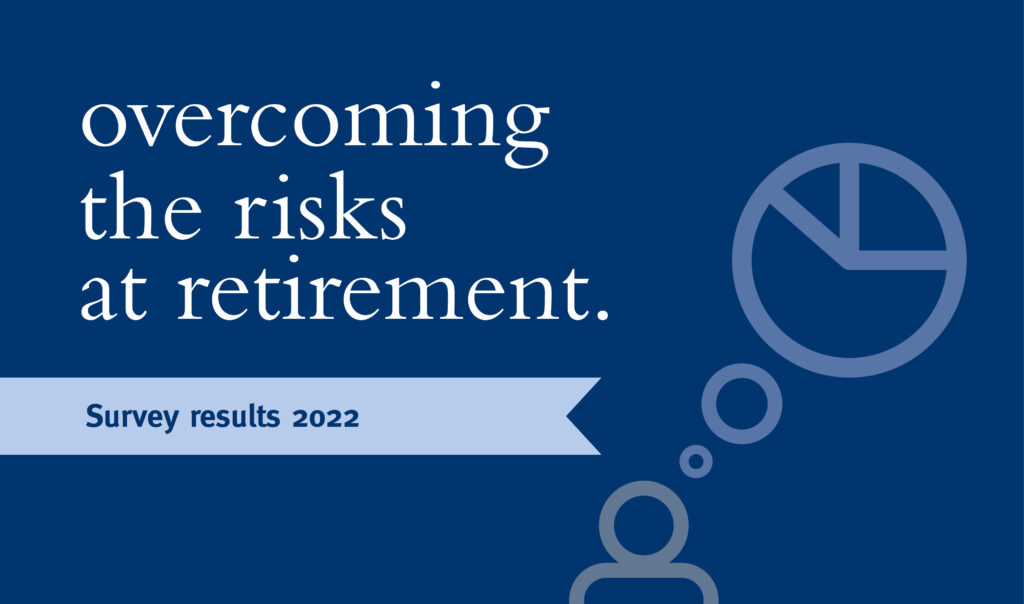92% of pension trustees fear savers approaching retirement will be targeted by scammers.
11th May 2022

WEALTH at work has conducted a survey with the Pensions Management Institute to investigate the concerns pension Trustees (the people responsible for ensuring that a pension scheme is run properly) have have for their scheme members in the run up to their retirement and what support provisions they have in place.
Some of the key findings include;
- 92% of Trustees fear their pension scheme members approaching retirement will be targeted by scammers.
- 88% of Trustees are concerned that their pension scheme members may not understand the tax implications of accessing their pension.
- 86% of Trustees have concerns about their pension scheme members’ lack of understanding of the risks they face if they transfer out of their defined benefit scheme.
- 73% of Trustees are apprehensive that their pension scheme members’ money will run out too soon in retirement.
Jonathan Watts-Lay, Director, WEALTH at work, comments;
“As the findings show, nearly all Trustees fear their pension scheme members nearing retirement will face predatory attention from scammers. The strain on household finances caused by the cost of living crisis could mean that some members are more vulnerable than ever this year.”
He adds; “Trustees also have fears around taxation for their members at retirement. They are right to be concerned as individuals can easily incur huge tax bills unknowingly when accessing their pensions, all of which can have a material impact on income levels in retirement. There are various strategies which can be taken to create tax savings opportunities but pension savers may not be aware of them.”
Watts-Lay comments; “These risks also equally affect defined benefit members (a type of workplace pension that give you a guaranteed income for life at retirment) who are considering transferring their pension into another type of pension which provides more flexibility over access. Indeed, the majority of Trustees in our survey have concerns over this. It’s unclear yet if the measures put in place to protect pension savers and stop scam transfers has helped. However, there is still the issue of people needing a clear understanding of whether the pension transfer they are planning to make is suitable and how to manage the money once transferred.”
Watts-Lay states; “When we consider all these risks, it’s unsurprising that so many Trustees are concerned that their members’ money will not last the duration of retirement. This may be due to not saving enough throughout their life.The Pensions Policy Institute published a report warning that most of those currently over 50 do not have adequate funds to achieve a ‘comfortable’ retirement as defined by the Pensions and Lifetime Savings Association. Additionally, the pension freedoms and the shift from defined benefit to defined contribution pensions, has very much put longevity and investment risk in the hands of individuals, and poor decision making at retirement can be far too easy.”
Support levels are encouraging – but more can be done
The survey found that half of Trustees provide financial education (50%) for their members at retirement, and almost half (48.5%) of Trustees provide or facilitate financial guidance for members at retirement.
Nearly two out of five (39%) Trustees are facilitating regulated financial advice for their members. Encouragingly, this has seen a 9 percentage point increase from 30% since the survey was last carried out in 2021.
Watts-Lay comments; “The financial decisions that people need to take are increasingly complex. Pension Freedoms have firmly put the control in the hands of individuals, but with this comes increased risk. It is likely that those who do well are those who are the most informed. Unfortunately, many find this whole area very confusing and are fated to make mistakes. As more and more people retire on defined contribution savings alone, this situation will only worsen unless these challenges are overcome.”
He adds; “This against the backdrop of a global pandemic, and more recently the cost of living crisis, will only add to the already significant challenges that pension savers face. In the current climate, it is not surprising to see that Trustees have so many concerns for their pension scheme members as they approach retirement.”
Watts-Lay explains; “It’s encouraging to see that a significant proportion of Trustees are providing support in terms of financial education, guidance and regulated financial advice to alleviate some of the risks at retirement.”
He adds; “The earlier support is provided in an individual’s life, the more likely they are to make better decisions. Also, income needs are likely to vary throughout what may be 25 years or more in retirement and cognitive decline may hinder decision making, meaning that ongoing support is likely to be required.”
Watts-Lay concludes; “Ultimately, empowering individuals with access to appropriate support at the right time, can improve financial capability and resilience, which should result in better retirement outcomes for all. Many Trustees now work with employers to provide support to their pension scheme members to help them understand their pension options. It’s always worth speaking to your workplace to see what support is available.”
About the survey
The survey conducted by WEALTH at work and Pensions Management Institute received 64 responses from a range of Trustees. It was completed online from January to April 2022. Figures have been rounded to the nearest whole number or to 1 decimal place where necessary.
Links to websites external to those of Wealth at Work Limited (also referred to here as 'we', 'us', 'our' 'ours') will usually contain some content that is not written by us and over which we have no authority and which we do not endorse. Therefore please be aware that we do not accept responsibility for the content of any third party site(s) except content that is specifically attributed to us or our employees and where we are the authors of such content. Further, we accept no responsibility for any malicious codes (or their consequences) of external sites. Nor do we endorse any organisation or publication to which we link and make no representations about them.



